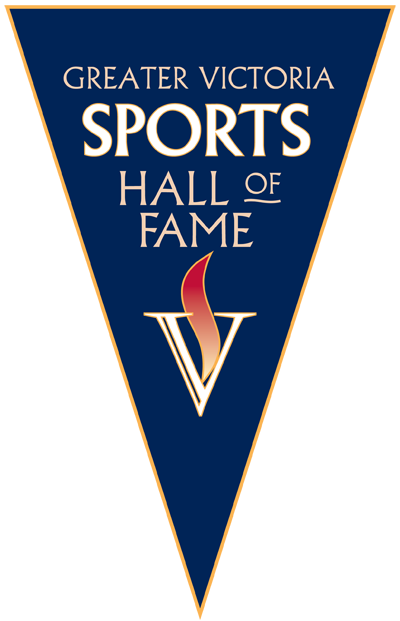The excitement of the Montreal 1976 Olympic Games sparked in Bruce a deep desire to succeed in sport. He recalls that he “was one of the shortest kids in my school and really uncoordinated. I was the kid who rushed for the outfield in gym class because I knew that no one could hit the ball that far and so I wouldn’t embarrass myself. I was not an athlete. In fact, if they had a vote in my school for the least likely to ever be an Olympian, I would have voted for myself.” Being one of the smallest kids in his class, there were few obvious sports at which he could succeed. All of that changed when he was introduced to long distance running while at summer camp.
By the time he was 13, he had completed two marathons, and his early start launched a winning high school track career. He attended and competed at the University of Western Ontario from 1985 to 1989, before moving west to attend teacher training at Simon Fraser University. He has resided in BC ever since, and in Victoria since 1996. It was after his move to BC, that his running took off and he qualified for his first national team.
Bruce’s international accomplishments as a marathoner include representing Canada at the 1996 and 2000 Olympic Games, the IAAF World Athletics Championships (1995, 1997, 1999, 2001), the Commonwealth Games (1994), and the 2003 Pan American Games where he won a silver medal. He was a frequent winner of local races such as the Times Colonist 10k and various events at the Victoria Marathon. In addition, he was the first three-time winner of the California International Marathon, and the last Canadian to win the National Capital Marathon. As a masters athlete, he won the New York City Marathon and placed second at the Boston Marathon.
A further level of significance in Bruce’s accomplishments was his appointment to lead the Western office of the Canadian Olympic Committee in Vancouver. Under his guidance the office took care of all of the COC’s education program and community relations west of Toronto. Bruce’s primary responsibility was the Canadian Olympic School Program, which provided Olympic-themed classroom activities for close to one million students.
Since retiring from international competition, Bruce has held various roles within the Provincial Government. He has made valued contributions to the Canadian sports system including his work with Athletics Canada, BC Athletics, BC Athlete Voice, Olympians Canada and the Canadian Olympic Committee. He currently coaches young runners, some of whom have qualified to compete on national and provincial teams.
SPONSORED BY HOWE & GRAMLICH / WEALTH MANAGEMENT
Al became known as the 'Trans Canada crossing god' for his phenomenal long distance running feats over an athletic career that spanned nearly three decades.
He was born in 1945 near Glasgow, Scotland and immigrated to Canada where he started running as a hobby in 1974. He moved to Victoria in 1978 and a year later the Prince George marathon brought together Al, Rick Hansen and Terry Fox. Al had run from Victoria to Prince George to be in the race.
Al was inspired by the dedication of Fox and began to train for longer runs. He won his age group in his first full-length marathon in 1980 in Edmonton, and then he ran from Edmonton to Victoria to enter the first annual Royal Victoria Marathon.
In 1981, Al set the Canadian and North American record for the annual Self-Transcendence 24 Hour Race in Ottawa. The following year he increased his distance, covering 150 miles and 395 yards in that continuous day and night (no sleeping) race. Al won the annual 24-hour race in Ottawa five years in a row, 1981 -1985. In 1983, he ran from Winnipeg to Ottawa to participate in the 24-hour event.
Health problems in 1985 forced Al to withdraw from all races. He recovered sufficiently by spring of the following year to run 1200 kilometres from Victoria to Fernie, BC. Al was back in form for the 1987 Canadian 24-hour Championship in Ottawa, winning the event for the sixth time.
A set of three races -- 700, 1000 and 1300 miles -- known as the "Ultra Trio" was held in 1987. No runners finished the 1300 Miler in New York in 1987 and 1988, but in 1989, Al was the first person ever to complete the grueling 1300-mile (2100 km) distance, setting the world record at 17 days and 9 hours. He also set a world record for 2000 km in the same race.
In addition, Al set a record in the 72-hour "Across the Years" race in Phoenix AZ, which is the last ultra race of one year and the first of the next. Al ran from December 29, 1989 to January 1, 1990.
Al's longest and most famous run came in 1991 when he ran the length of the Trans Canada Highway from the Mile Zero sign in St. John's, Nfld, to Mile Zero in Victoria, BC. He covered the 7295.5 km in the record time of 72 days, 10 hours and 23 minutes. A brass plaque at Victoria's Mile Zero commemorates the event, and qualified Al for the Guinness Book of Records.
Al has won more than fifty marathons, ultra marathons and multi-day races in over two decades. He broke the record for the longest, continual run, completing 580 km around the University of Victoria's Centennial Stadium in 104.5 hours. That was four non-stop days and nights to promote the Commonwealth Games. Al now lives in Duncan, B C where the City awarded him the Perpetual Trophy for Excellence and Sportsmanship in December 2007.
Sponsored by Howe & Gramlich Wealth Management Inc.












